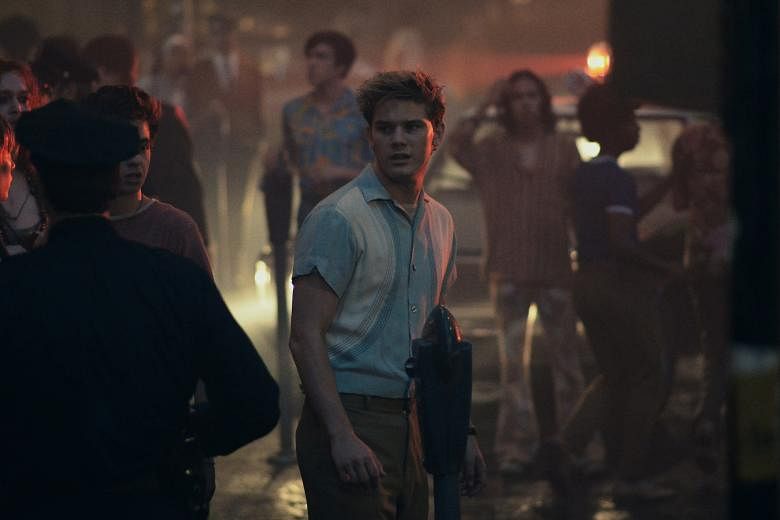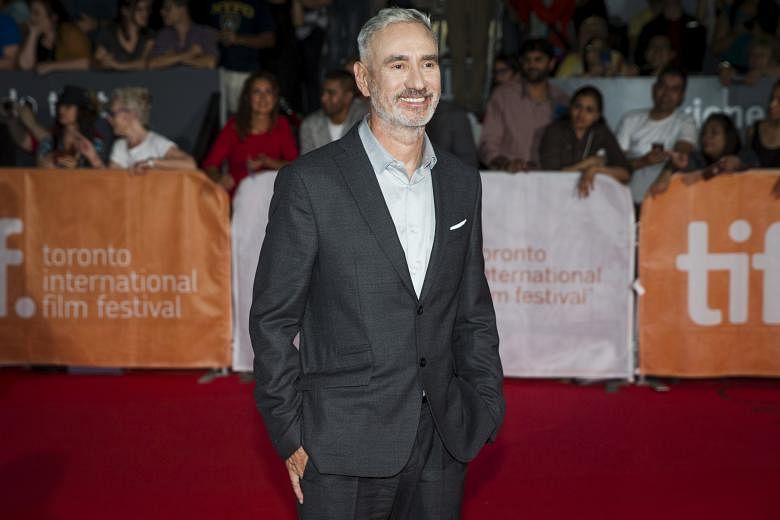Roland Emmerich is best known for directing big movies about humanity's worst day, such as Independence Day (1996) and The Day After Tomorrow (2004).
Every now and then, he works on low-budget passion projects such as Stonewall, which opens in Singapore today.
Emmerich, 60, told Life in a recent interview from the Toronto Film Festival, where he was screening the film, that the riots - dubbed the Stonewall riots because they were sparked by police raids at the Stonewall Inn in New York's Christopher Street - are crucial historical events.
Christopher Street Day marches, held to mark the 1969 riots, are held in Europe yearly to mark lesbian, gay, bisexual and transgender pride. Emmerich found that few people knew about the events that give the parade its name.
"When you talk to young people, they have no idea what caused the marches. That's the reason why I began to be interested in making a movie about it," he says.
"During the Stonewall riots, for the first time, gay people went against the police, the authorities, to protest.
"All the gay bars were run by the mafia and customers were hunted by the police and they had had enough. It was a moment in time when everything came together and exploded."
The film is seen largely through the eyes of Danny Winters (Jeremy Irvine), a boy from the Midwest fleeing persecution after he is outed by friends and booted from the family by his father.
He arrives at Christopher Street, which by then, had a reputation for sheltering gay people. He is introduced to characters from its subcultures, such as prostitute Ray (Jonny Beauchamp), political activist Trevor (Jonathan Rhys Meyers) and the Stonewall Inn's mafia-linked owner, Ed (Ron Perlman).
Danny learns that Christopher Street's reputation as a safe haven is exaggerated; gays and lesbians who live there and go to its clubs still face harassment and violence, preyed upon by the police and crime syndicates.
"The film is made for everybody, gay and straight. In Toronto, it made me happy that the straight audience enjoyed it," he says.
The movie tries to capture the mood of the moment and the kinds of people who made up the culture of Christopher Street, down to the specifics of the riots, which Emmerich notes, had a flavour of their own.
Oppression, sometimes, evokes a bleak kind of humour in the oppressed, he says.
"The interesting part for me, when doing research, was to find out that it was a different kind of riot. The protesters formed a line, like a chorus line, and kicked their legs. For me, as a gay man, it looked like a gay riot."
• Stonewall opens in cinemas today.



